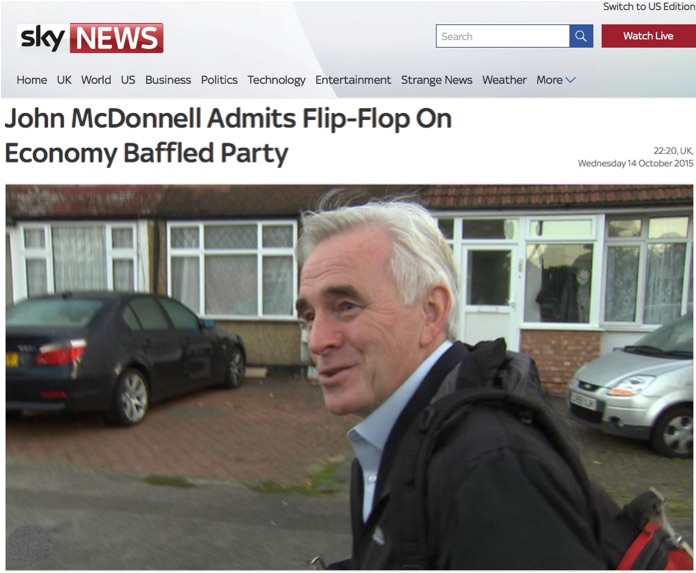How to manage a Flip-Flop
A new phrase has crept into the British political reporters’ lexicon – to Flip-Flop. The phrase has come from the US and it means to say one thing one week and something different the next.
Flip-Flops and U-Turns

Flip-Flop has a whole new meaning
This used to be called a U-turn, a phrase that regularly made the headlines in the eighties. As a journalist, spotting a change in a publicly stated position still instantly provides an angle and a headline. I stumbled across this quote from Bernard Ingham, Thatcher’s chief press secretary, who suggested in PR Week fifteen years ago that U-turns deserved a whole chapter in any book on political PR.
“I spent the first two and a half Thatcher years playing spot-the-U-turn with the Lobby until she told her party conference: ‘You turn if you want to. The lady’s not for turning’. That didn’t stop ’em looking for one but it did slightly reduce the expectation.”
Clinton Flip-Flop
In the US Hillary Clinton is getting a lot of Flip-Flop headlines. She is said to have changed her mind on at least three key points during her run for President: whether she supports illegal immigrants being allowed drivers’ licenses, whether she supports a trade deal called TPP and whether she opposes same-sex marriage: all changes widely dubbed a Flip-Flop.
McDonnell Stumbles
In the UK John McDonnell the Shadow Chancellor won the Flip-Flop headline and a lot of stick for firstly saying Labour should support the government’s Fiscal Charter and then deciding it should not. (For those that have missed this bit of political theatre the bill enshrines in law the principle that the government must maintain a budget surplus in ‘normal times’.)

McDonnell wins the Flip-Flop headline
The PR Rules
If you are in the public-eye, changing your mind about something of substance always carries the risk of the U-turn/Flip-Flop headline. And yet of course leaders, both business and political, can and should change their minds, it would be a crazy world if they didn’t.
As PR people know, such changes just need to be managed carefully.
Rule number one is, avoid making pronouncements which you may have to change later: I am often suggesting to clients that are not quite so definite about something, if its not crucial to the story then why provide this ‘hostage to fortune’. I would also caution against making up a policy in the middle of an interview! Sounds unbelievable but happens all the time. I have several examples in mind but would be breaking client confidentiality to share.
Secondly, if you are going to change your mind, plan it and explain it in a coherent and open way.
Managed U-Turns
The news this week gave us just such an example: a carefully stage-managed U-turn. President Obama held a news conference to explain his change of heart on his plans to withdraw US troops from Afghanistan. He still got the odd Flip-Flop headline – or indeed in a new iteration ‘Flips’ in the Huffington Post, but mostly the story was not used as evidence of a weak and indecisive president.
Negative reporting is reduced if you go public on your own timetable, and provide a reasoned argument. It also helps if some time has elapsed between any original pronouncements and the reversal. McDonnell did explain his change of heart to the House of Commons but the fact that it was just a couple of weeks after the first announcement, meant it was his ‘Flip-Flop’ rather than the bill itself that got all the headlines. As in this example from The Guardian.
Flip Flop picture courtesy of clourblindPICASO under a Creative Comms licence.
- Why Mick Lynch is Right to be Wary of Pre-recorded Interviews - April 16, 2024
- Takeaways from Netflix Scoop: The Prince Andrew Interview - April 10, 2024
- Kate Shows How to Read Autocue - March 26, 2024





Leave a Reply
Want to join the discussion?Feel free to contribute!